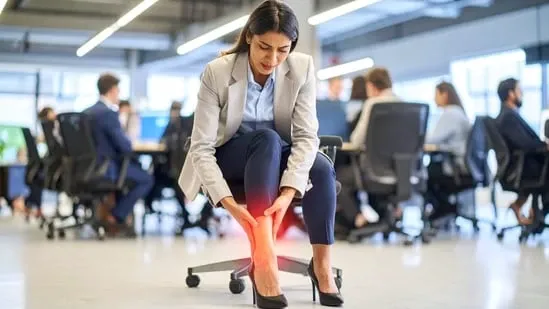Orthopedic doctor explains how desk jobs affects joints, warns against stiffness and weakness
admin | August 26, 2025 3:22 PM CST

If your typical working day involves sitting for long hours on your chair, you may want to pay special attention to your overall health.
While sitting may seem relaxing as compared to physical labour, it brings a hidden cost to physical health, particularly to our joints.
According to Dr Ashish Mittal, Director and Unit Head - Department of Orthopaedics & Joint Replacement, Arthroscopy & Sports Injury - Max Hospital, Dehradun, long periods of desk work can subtly exacerbate chronic pain, muscular imbalances, and joint stiffness, particularly in the neck, shoulders, spine, hips, knees, and wrists.
Side effects of desk jobs on joint health
Desk-bound jobs limit mobility, which lowers blood flow and lubrication in the joints and increases their susceptibility to stiffness and degeneration over time, Dr Mittal tells Health Shots.
What makes it worse? Poor posture! Slouching, craning the neck forward, or sitting with the legs crossed, can exacerbate these problems that sitting too long can bring along.
Common long-term joint issues due to desk jobs
You may experience one or more of the following if you sit for long working hours:
- Chronic neck and shoulder stiffness
- Lower back pain due to prolonged sitting
- Hip tightness and reduced flexibility
- Knee strain from improper sitting posture
- Wrist and hand discomfort from excessive typing or mouse use
- Stretching exercises
- Invest in ergonomic workstations
- Take breaks to stand or walk every hour
- Maintain proper posture
READ NEXT
-
After PM Modi’s degree case, Delhi HC blocks disclosure of Smriti Irani’s educational records

-
Sephora drops Huda Beauty from upcoming fall campaign over ‘antisemitism’ video

-
Family install pet flap and are amazed by 'sneaky' visitor in dog's bed

-
Nation's demand world map to be redrawn to show 'Africa's greatness'

-
Coronation Street star wows in bikini after huge personal news
